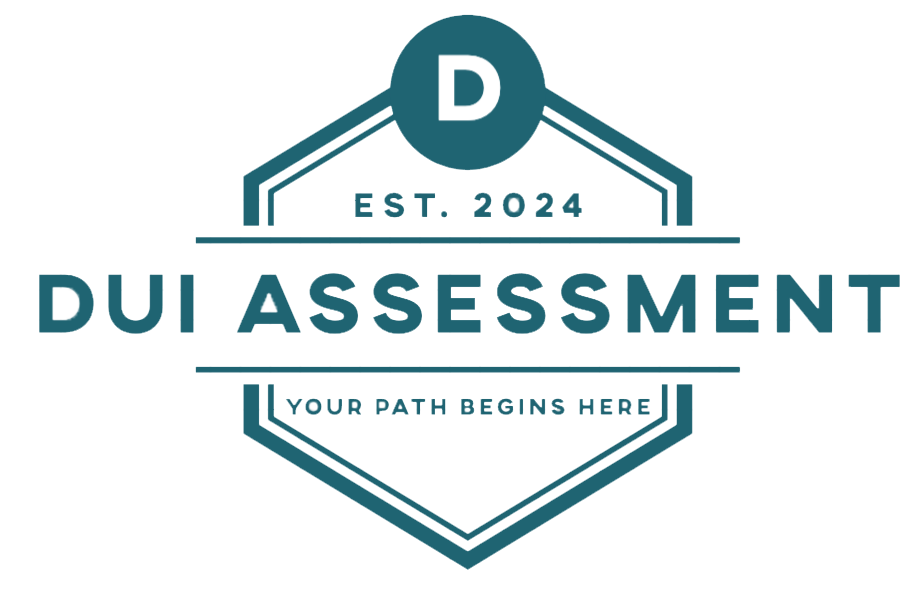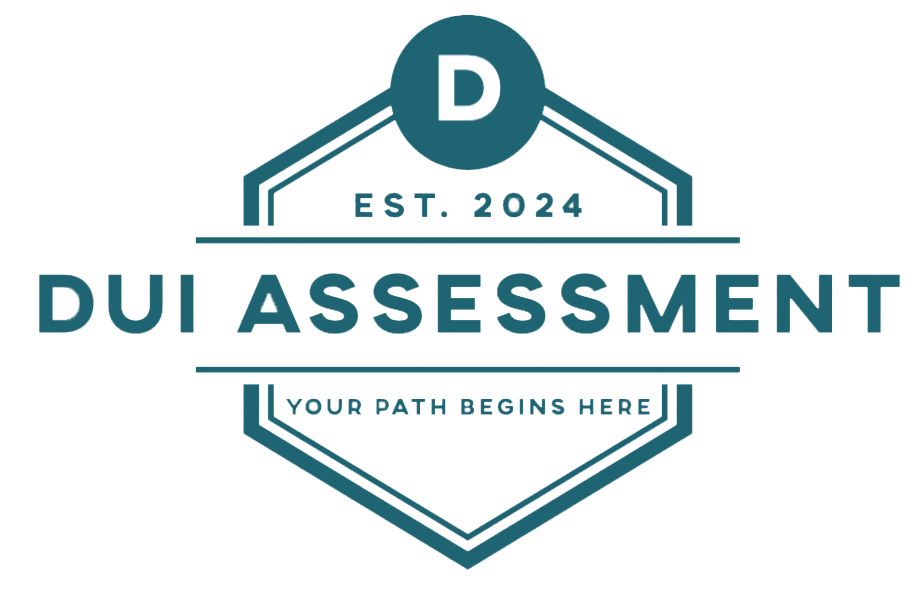Getting arrested for driving under the influence in Oregon can be one of the most stressful and confusing experiences of your life. Understanding what happens when you get a DUI in Oregon is crucial for anyone facing these serious charges, as the state’s laws are complex and the consequences can be life-altering. Oregon uses the term DUI (Driving Under the Influence of Intoxicants) rather than DWI, and the state has developed some of the strictest penalties in the nation over the past several years.
The Oregon DUI process involves multiple moving parts, including both criminal court proceedings and separate administrative actions by the Department of Motor Vehicles. These parallel processes can occur simultaneously, creating additional complexity for those unfamiliar with the system. From the moment red and blue lights flash in your rearview mirror to the potential long-term impacts on your employment, insurance, and personal life, the consequences of a DUI charge extend far beyond what many people initially realize.
This comprehensive guide will walk you through every step of What Happens When You Get a DUI in Oregon, providing detailed information about what to expect at each stage. Whether you’re currently facing charges, want to understand the law better, or are simply curious about Oregon’s approach to drunk driving enforcement, this guide will help you navigate the complex legal landscape surrounding DUI charges in the state.
The Oregon DUI Legal Framework
Oregon’s approach to impaired driving has evolved significantly over the decades, with legislators consistently toughening penalties and expanding the definition of what constitutes driving under the influence. The state’s current laws reflect a zero-tolerance approach that prioritizes public safety while attempting to balance the rights of defendants with the need for deterrence.
Under Oregon Revised Statute 813.010, a person commits the offense of driving while under the influence of intoxicants if they drive a vehicle while impaired by alcohol, controlled substances, inhalants, or any combination thereof. The law also establishes a “per se” violation, meaning you can be convicted solely based on having a blood alcohol content of 0.08% or higher, regardless of whether you appear impaired.
Recent changes to Oregon’s DUI laws in 2024 have expanded the scope of what constitutes an intoxicant. The updated statute now includes over-the-counter medications and supplements that could impair a person’s ability to drive safely. This means that taking too much cough syrup, combining multiple medications, or even consuming excessive amounts of certain supplements could potentially result in DUI charges if they impair your driving ability. Understanding what happens when you get a DUI in Oregon under these new laws is crucial, as even seemingly harmless substances may now lead to serious legal consequences.
Step 1: The Initial Traffic Stop and Field Investigation
When a law enforcement officer suspects you’re driving under the influence, they’ll initiate a traffic stop based on observed driving behavior, traffic violations, or other suspicious activity. The officer is trained to look for specific indicators of impairment, including weaving between lanes, following too closely, driving significantly under the speed limit, or exhibiting erratic behavior.
During the initial contact, the officer will be assessing you for signs of intoxication. They’re trained to observe your eyes for bloodshot or watery appearance, listen for slurred speech, note any odor of alcohol or other substances, and watch for unsteady movement or difficulty following simple instructions. The officer will typically ask where you’re coming from, where you’re going, and whether you’ve been drinking. While you’re required to provide identification and vehicle registration, you’re not legally obligated to answer questions about your activities or alcohol consumption.
The officer may ask you to step out of the vehicle to perform Standardized Field Sobriety Tests (SFSTs). In Oregon, you have the right to refuse these tests, and there are no direct legal penalties for doing so. However, the officer can use your refusal as evidence of consciousness of guilt in court proceedings. The three standard tests include the Horizontal Gaze Nystagmus (eye test), the Walk-and-Turn test, and the One-Leg Stand test.
If the officer develops probable cause to believe you’re impaired, you’ll be placed under arrest. At this point, what happens when you get a DUI in Oregon becomes much more serious, as you’ll be transported to jail and the formal legal process begins.
Step 2: Chemical Testing and Implied Consent
Oregon’s Implied Consent Law is a critical component of the state’s DUI enforcement strategy. By driving on Oregon roads, you’ve automatically given consent to submit to chemical testing if lawfully arrested for DUI. This law applies to all drivers, including those from other states who are just passing through Oregon.
After arrest, you’ll be asked to submit to a breath, blood, or urine test to determine the level of intoxicants in your system. The officer will read you an implied consent advisory, explaining your obligations and the consequences of refusal. You have the right to contact an attorney before deciding whether to submit to testing, but you cannot delay the testing process unreasonably while trying to reach legal counsel.
If you refuse chemical testing, you’ll face immediate consequences separate from any criminal charges. The refusal itself is a traffic violation punishable by a $650 fine. More significantly, your driver’s license will be confiscated on the spot, and you’ll face an administrative license suspension of one year for a first refusal, or three years if you’ve previously refused testing or been convicted of DUI within the past five years.
The results of chemical testing play a crucial role in determining what happens when you get a DUI in Oregon. A BAC of 0.08% or higher for regular drivers (0.04% for commercial drivers) creates a “per se” violation, meaning the state doesn’t need to prove impairment beyond the test result. Even with a BAC below these thresholds, you can still be convicted if the prosecution can prove you were impaired by alcohol, drugs, or other intoxicants.
Step 3: Booking and Initial Detention
After arrest and chemical testing, you’ll be transported to a local jail for booking. This process involves photographing, fingerprinting, and collecting personal information for law enforcement records. Your personal belongings will be inventoried and stored, and you’ll be placed in a holding cell while the booking process is completed.
The officer will confiscate your driver’s license during this process, replacing it with a temporary driving permit that’s valid for 30 days. This temporary permit allows you to continue driving while you decide whether to request an administrative hearing to challenge your license suspension. The 30-day period is crucial because it represents your window of opportunity to contest the administrative action against your driving privileges.
You’ll typically be held in jail until you can post bail or until you’re released on your own recognizance. The amount of bail depends on various factors, including your criminal history, the circumstances of your arrest, and whether there were any aggravating factors such as an extremely high BAC or an accident. First-time offenders with no prior criminal history may be released without bail, while repeat offenders or those involved in accidents may face higher bail amounts.
During your time in custody, you have the right to make phone calls to contact family, friends, or an attorney. It’s advisable to use this opportunity to begin arranging legal representation, as the complexity of Oregon’s DUI laws makes professional legal guidance essential for protecting your rights and achieving the best possible outcome.
Step 4: Administrative License Suspension Process
One of the most immediate and practical consequences of a DUI arrest in Oregon is the administrative license suspension, which occurs separately from any criminal court proceedings. This administrative action is handled by the Oregon Department of Motor Vehicles and can result in the loss of your driving privileges even if you’re ultimately not convicted of the criminal DUI charge.
You have only 10 calendar days from the date of your arrest to request an administrative hearing to contest this suspension. This deadline is absolute – missing it means your license will be suspended automatically according to the statutory schedule. The hearing request must be made in writing and submitted to the DMV along with a $150 fee.
During an administrative hearing, the focus is narrow and specific. The hearing officer will only consider whether the officer had reasonable grounds to believe you were driving under the influence, whether you were lawfully arrested, and whether you refused chemical testing or had a BAC above the legal limit. The hearing officer cannot consider factors like whether the DUI charge should be dismissed or reduced, as those are matters for the criminal court.
If you don’t request a hearing or if you lose the administrative hearing, your license will be suspended for varying periods depending on your BAC level and driving history. A first offense with a BAC between 0.08% and 0.14% results in a 90-day suspension, while a BAC of 0.15% or higher triggers a one-year suspension. Repeat offenders face progressively longer suspension periods.
Understanding this administrative process is crucial when considering what happens when you get a DUI in Oregon, as the loss of driving privileges can have immediate impacts on your ability to work, attend school, or handle daily responsibilities.
Step 5: Criminal Court Proceedings Begin
Your criminal case formally begins with an arraignment, typically scheduled within a few days to a few weeks after your arrest, depending on whether you were released from custody. At the arraignment, you’ll appear before a judge who will inform you of the charges against you, explain your rights, and ask you to enter a plea.
You have three options for your plea: guilty, not guilty, or no contest. Most defense attorneys recommend entering a not guilty plea at arraignment, as this preserves all of your options and gives your lawyer time to investigate the case and develop a defense strategy. Entering a guilty plea at arraignment eliminates your ability to challenge the evidence or negotiate for better outcomes.
Oregon law contains a unique provision that prohibits plea bargaining DUI charges to lesser offenses. This means you cannot plead guilty to a reduced charge like reckless driving in exchange for dismissing the DUI charge. The prosecution cannot offer such deals, and judges cannot accept them. This “no-plea-bargaining” rule means that DUI cases in Oregon typically result in either a conviction for the DUI charge, dismissal of the case, or successful completion of a diversion program.
After arraignment, your case will be scheduled for various pre-trial proceedings, including discovery, motion hearings, and potentially a trial. The discovery process allows your attorney to obtain copies of police reports, witness statements, chemical test results, and other evidence the prosecution intends to use against you. This information is crucial for developing an effective defense strategy.
Step 6: DUI Diversion Program for First-Time Offenders
Oregon’s DUI Diversion Program represents a second chance for first-time offenders who meet specific eligibility requirements. This program allows eligible defendants to avoid a criminal conviction by completing a structured probationary period with specific requirements. Successfully completing diversion results in dismissal of the DUI charge, meaning you won’t have a criminal conviction on your record.
To qualify for diversion, you must meet several strict criteria. You cannot have participated in a diversion program within the past 15 years, regardless of the jurisdiction where the previous diversion occurred. You cannot have been involved in an accident that resulted in injury or death to another person. You cannot have held commercial driving privileges at the time of the offense, as commercial drivers are held to higher standards and are ineligible for diversion.
The diversion program typically lasts one year and includes multiple components designed to address the underlying issues that led to the DUI arrest. You’ll be required to complete a substance abuse evaluation conducted by a qualified professional, who will assess your relationship with alcohol or other substances and recommend appropriate treatment. You must complete any recommended treatment program and maintain abstinence from alcohol and non-prescribed controlled substances throughout the diversion period.
Financial obligations under the diversion program are substantial. You’ll pay various fees including the diversion program fee, substance abuse evaluation and treatment costs, ignition interlock device installation and monitoring fees, and potentially probation supervision fees. The total cost often exceeds several thousand dollars, representing a significant financial consequence even without a criminal conviction.
Community service is another standard requirement, typically ranging from 80 to 200 hours depending on the circumstances of your case. You’ll also be subject to probation supervision, which may include regular check-ins with a probation officer, random alcohol and drug testing, and compliance monitoring.
Step 7: Understanding DUI Penalties and Sentencing
When diversion isn’t available or isn’t successfully completed, what happens when you get a DUI in Oregon includes facing the full range of criminal penalties established by state law. Oregon imposes mandatory minimum sentences for DUI convictions, meaning judges have limited discretion to impose lighter sentences than those required by statute.
For a first DUI conviction, you’ll face a minimum fine of $1,000, though judges can impose fines up to $6,250. You’ll serve a minimum of two days in jail, which can be extended up to one year depending on the circumstances. Your driver’s license will be suspended for one year from the date of conviction, separate from any administrative suspension you may have already served.
Second DUI convictions within 10 years carry enhanced penalties reflecting the state’s concern about repeat offenders. The minimum fine increases to $1,500, with the same maximum of $6,250. Jail time increases to a minimum of 20 days, with the possibility of up to one year. The license suspension period extends to three years for a second conviction.
A third DUI conviction within 10 years represents a significant escalation in Oregon’s penalty structure. This level of repeat offense is classified as a Class C felony, transforming what would otherwise be a misdemeanor into a much more serious criminal charge. The minimum fine jumps to $2,000, but the maximum increases dramatically to $125,000. Jail time becomes prison time, with a mandatory minimum of 90 days and a maximum of five years in state prison.
The felony classification of a third DUI carries consequences beyond the immediate criminal penalties. Felony convictions can affect employment opportunities, professional licensing, housing applications, and various civil rights including the right to possess firearms.
Step 8: Enhanced Penalties for Aggravating Circumstances
Oregon law recognizes that certain circumstances make DUI offenses particularly dangerous or egregious, warranting enhanced penalties beyond the standard minimums. These aggravating factors can significantly increase the consequences you face, making it even more important to understand what happens when you get a DUI in Oregon when these circumstances are present.
A high blood alcohol content of 0.15% or higher is considered an aggravating factor that typically results in increased fines and longer license suspension periods. Courts view extremely high BAC levels as evidence of particularly reckless behavior and a greater threat to public safety.
Having a minor passenger under the age of 18 who is at least three years younger than the driver represents another serious aggravating factor. Oregon lawmakers have determined that endangering children through impaired driving warrants significantly harsher penalties. These cases often result in enhanced sentences and may trigger involvement from child protective services.
Accidents resulting in injury or death transform a DUI case into something much more serious. A DUI involving an accident with injuries typically becomes an assault in the third degree charge, classified as a Class C felony. If someone dies as a result of your impaired driving, you could face vehicular homicide or manslaughter charges, which are Class B felonies carrying potential sentences of up to 10 years in prison.
Commercial drivers face additional complications, as they’re held to higher standards under both state and federal regulations. A DUI conviction typically results in the loss of commercial driving privileges for extended periods, effectively ending careers in transportation, delivery, or other industries requiring commercial licenses.
Getting Help Today
Understanding what happens when you get a DUI in Oregon reveals a complex legal process with serious consequences that extend far beyond the initial arrest. From the moment you see flashing lights in your rearview mirror through the potential long-term impacts on your career and personal life, Oregon’s DUI laws create a challenging landscape that requires careful navigation.
The state’s approach reflects a clear legislative intent to deter impaired driving through substantial penalties, limited plea bargaining options, and comprehensive monitoring systems. Whether you’re facing charges, want to understand your rights, or simply need to comprehend Oregon’s legal framework, the information in this guide provides the foundation for making informed decisions about your case.
Given the complexity of Oregon’s DUI laws and the serious consequences involved, consulting with an experienced criminal defense attorney is essential for anyone facing these charges. The decisions you make early in the process can have lasting impacts on your life, making professional legal guidance invaluable for protecting your rights and achieving the best possible outcome.
You deserve clarity, compassion, and quality care. At DUI Assessment, we provide exactly that. Visit our website today at www.dui-assessment.com to learn more.



